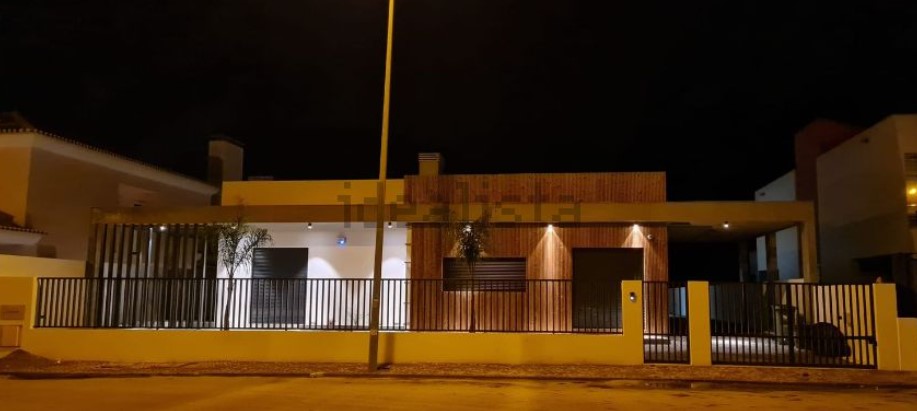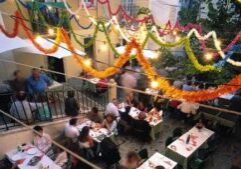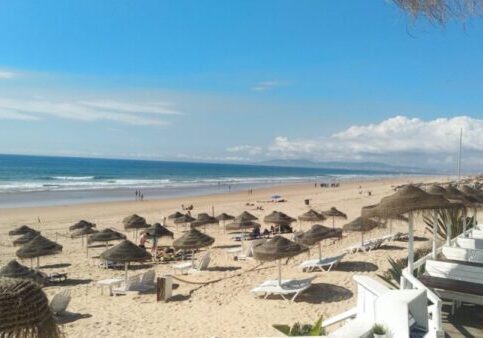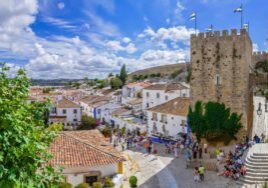5 fears that are holding you back from moving to Portugal. Don’t worry!
![]()
Depending on your age, personality, family or professional situation… the fears of moving abroad are different for everyone. For everyone, leaving their environment and comfort zone brings with it a mixture of feelings: excitement and apprehension. Today, I’ve decided to draw up a non-exhaustive list of 5 fears that could prevent you from taking the plunge and put the brakes on your plans to move to Portugal. The aim of this article is to reassure you about some of these fears.

Fear n°1: Missing my loved ones: how will I deal with this?
One of the main fears we all have when moving abroad is missing family and friends, even the less sensitive ones(yes, yes! even you, the tough guy who’s reading me behind your screen!).
Once you’ve moved to Portugal, let’s face it, because of the distance, you won’t be able to see your friends or family at the last minute for an aperitif, and you won’t be able to be present at all the birthdays, weddings, births… of your loved ones. What’s more, when you do get home, it’s going to be a race to see everyone: friends, family, former colleagues… but the truth is, you rarely manage it. Finally, you’ll be moving to Portugal, and often you won’t know anyone, so you’ll have to recreate your social circle.
Family visiting Portugal.
Don’t worry!
France and Portugal are close, flights are short and cheap, and Portugal has three international airports. A bout of the “blues” and hop! A quick trip to France! That way, you’ll be able to get back to France quite easily, and when you return to see your loved ones, you’ll enjoy it even more than before. When you see them, you’ll have lots to tell them, anecdotes about your new life, and you’ll be delighted to offer them “pasteis de nata” and a fridge magnet with a rooster or a sardine, symbols of Portugal. They’ll ask you lots of questions, they’ll make you repeat the same things 100 times, they’ll ask you for photos of your new life … but … you’ll love it!
Friends and family will want to visit you and discover your new life in Portugal, so you’ll have a great time with them. You’ll take on the role of guide and show them around your new surroundings. Like me, you’ll probably visit the beautiful and colorful Palacio de Pena in Sintra several times, climb the stairs of Castelo São Jorge in Lisbon several times, stuff your face a thousand times with the unique and delicious pasteis of Belem, and regularly vibrate to the rhythm of the cobblestones in the Tuk Tuk… but always with the pride of introducing your loved ones to your new life.
You’ll be able to keep in touch with your loved ones thanks to new technologies. I know, it doesn’t replace “human” contact, but with Skype, Whats’app, Facetime… it’s easy to keep in constant touch with your loved ones, even for those who aren’t “pro” at new technologies, these applications are very easy to use once installed.
Whatever your age, if you’re open-minded and curious, you’ll make new friends. Don’t be in any doubt! You can meet people through the French communities in Portugal(many groups are very active, especially on Facebook). What’s more, most of the members of these groups have the same thing in common as you: they’ve moved to Portugal from their native country. A good first topic for discussion over a little “Porto”! But that’s not the only way to make new social contacts. There are also, among many others, the Alliances Françaises and the many activities you can sign up for, depending on your tastes: cooking, hiking, golf, surfing, sewing, yoga, Portuguese lessons, paddle, diving…
Fear n°2: “Nãofalo português! I only speak French! How will I make myself understood?
Arriving in a country where you don’t speak the language can be frightening, and speaking only French can sometimes be a handicap. Even if you master Portuguese over time, you’ll never be as at ease as you were with your native tongue, and your French jokes translated into Portuguese are likely to fall flat(I’ve tried this myself!).
Portuguese lessons.
Don’t worry!
Even if you don’t make any effort to learn the language, if you hear it every day, you’ll soon pick up the basics and start to know a few words with a nice, sexy “French accent”. A word of advice: at the start, remember to take a dictionary with you, watch films or series with Portuguese subtitles, and above all try to speak as much Portuguese as possible, which isn’t always easy, as you’ll see, many Portuguese people here speak French or English, so you’ll tend to take the easy way out by speaking one of these two languages rather than Portuguese. Of course, you can also take Portuguese lessons in a variety of places and for different budgets: alliances françaises, universities, private language schools or private tutors. To find out more about how to learn Portuguese, read one of my latest articles here.
Finally, don’t forget that Portugal is a “southern” country, so body language is important. You’ll have no trouble making yourself understood through gestures and mime, sometimes at the risk of sounding ridiculous, but the important thing is to make yourself understood, right? As a little anecdote, a few weeks ago I was looking for matches in the supermarket, but I didn’t know how to say the word, so I tried a “French” method, which was to add “tche”, the famous Portuguese sound, to the end of “matches”. With a sure step, I walked up to the sales assistant and asked for “allumetches”. Her blank look quickly confirmed that this was not the correct word, so I used my mime skills to mimic the cracking of the match on the box, and the sales assistant understood and accompanied me to the right aisle. There are two lessons to be learned from this anecdote: don’t be afraid of ridicule, and now I’m proud to be able to say “matches” in Portuguese (come on, I’m being nice, I’m sharing this vocabulary word with you, so you’ll think of me if you use it one day, it’s “fosforos”).
Fear n°3: Where will I go shopping? My little habits are going to be turned upside down.
Your lifestyle, eating habits and other habits are bound to be turned upside down, and that’s normal. When you go to live abroad, you arrive in a country with a new culture, different lifestyles, a gastronomy that’s not your own… Let me reassure you right now, Portugal remains a European country with codes more or less identical to those of France, so the culture “shock” will be less disturbing than the one you might experience if you went to live in Thailand, for example. It’s true, however, that some of the “little things” in everyday life will be different: you may come across a cleaning product and wonder whether it’s for washing windows or unclogging toilets, you may discover what “scuts” are on freeways, you may learn that traffic rules in traffic circles are a little different from those in France, and many other little details…
Brochette of salmon and shrimp grilled by the sea.
Don’t worry!
Food-wise, we French love our French cuisine, so you may wonder how you’re going to manage without your stinking camembert, your baguette and your glass of red wine, but rest assuredyou’ll find most of these products in Portugal . There are many of the same food brands you’d find in France(Intermarché, Lidl, Leclerc, Aldi, Paul, Kaiser... ) and with the ever-growing French community there are also French restaurants, bakeries, patisseries, grocery stores… springing up all over Portugal. But, as I explain in my article“Cuisine portugaise et cuisine française: 15 équivalences“, it’s also important to change your “French” habits and adapt as much as possible to “Portuguese” habits, even when it comes to food.
On the other hand,Portuguese gastronomy is delicious. It’s not well known abroad, but you’ll quickly appreciate it, and you may, like me, adopt Portuguese culinary habits, such as eating a loaf of bread with ham in the morning rather than your pain au chocolat (chocolatine for the southerners who read me), or drinking a Porto as an aperitif instead of your Pastis … Living abroad also means immersing yourself in the culture through food, and you’ll appreciate eating French cuisine all the more when you’re back in France.
As for your other day-to-day habits, as I said in the introduction, Portugal operates in much the same way as France, so adapting will be much easier than you think. You’ll also be familiar with a large number of retailers: Intermarché, Lidl, Leclerc, Aldi, Bricomarché, Leroy Merlin, Décathlon, Ikea, Fnac, Zara, Mango, Paul, Kaiser… the list goes on!
Fear n°4: I’m leaving with my children: will they be able to adapt to life in a new country?
Expatriation can be even more stressful when you’re sharing it with your children, as there’s the added apprehension of how they’ll adapt, how they’ll fit in, how they’ll adapt to school life, how they’ll adapt to a new language…
Family expatriation in Portugal.
Don’t worry!
In Portugal, you’ll have many options: private schools, public schools, French schools, English schools(often based on the American or British model), but also Portuguese schools with renowned academic standards. You’ll find an article dedicated to this topic on the blog: “Schooling for French-speaking children in Portugal“, featuring testimonials from several parents who have moved to Portugal with their children.
Your little ones will adapt much more easily than you might think. We often think of the crying fits they have at the start of the school year, and imagine that it will be worse abroad, but for the most part, their integration goes smoothly. Their work, both intellectual and linguistic, generally pays off after a term. Children are sponges and have less resistance to learning than adults. What’s more, “expatriate” children are generally quick to open up to others and re-create a social network.
Moving abroad strengthens family ties, since parents and children will eventually find themselves in the same situation, living this new experience simultaneously: a new job for parents, a new school for children and new social ties to create. As a family, you’ll be sharing your own discoveries, and a new sense of complicity will take root. I invite you to read L’enfant expatrié by Gaelle Goutain on the subject of expatriation with children.
Fear n°5: The administrative procedures involved in moving abroad are too complicated. It scares me!
Administrative procedures can be a real headache, and if you look at the story of Virginie and Greg, the founders of Villa Feria, it’s precisely because of the cumbersome administrative procedures and complications they encountered when building their home that they had the idea of creating their company to facilitate these settlement procedures for foreigners.
But red tape isn’t just limited to what you have to do when buying or building a house, there’s also all the “day-to-day” paperwork. Contrary to the other fears mentioned earlier in the article, I’m not going to reassure you by telling you that administrative formalities are simple – that would be lying to you – but administrative formalities are never easy, whether you’re moving home or expatriating abroad.
Dealing with administrative paperwork.
So here’s a non-exhaustive list of six things you’ll have to do in France and in Portugal, because once you’ve done the paperwork in France, you’ll have to continue it in Portugal, otherwise it wouldn’t be much fun! These steps are not insurmountable, but you’ll need to be organized and start them at least two months before your departure(more details on all the steps here).
In France:
- Cancel your various contracts (insurance, telephone, electricity, water…) by calling customer services, sending registered letters…
- Tax formalities: make an appointment with your local tax office (indicated on your tax form or in your online account at impots.gouv.fr).
- Apply for your European social security card. This card is intended for short-term stays, but you should still apply for it when you first settle in Portugal. After that, you’ll need to apply for your social security in Portugal.
In Portugal:
- Obtain a tax identification number: the NIF, more commonly known as the “numero contribuente”. All you need to do is go to the “ finanças “, the finance department closest to where you live, with your identity card and proof of residence in Portugal. This number is very important in Portugal, and you’ll often be asked for it in all your dealings(electricity, gym membership, tax, work…),
- Toopen a bank account, all you need to do is choose the bank you want and send us the documents you’ll need to open an account: ID, proof of address and the famous NIF identifier. If you’re not sure which bank to choose, Caixa, Millenium-BCP and Santander are among the most popular with expatriates,
- Activate electricity, water, internet… in Portugal. To do this, you need to go to the ” loja do cidadão “, one of several in the country, where all the service providers(electricity, water, internet …) are grouped together, where you can activate everything. You’ll have access to the different offices of the service providers, and you can activate accounts one after the other… rather practical, don’t you think?
In conclusion
It’s not a decision to be taken lightly, and it’s important to think things through before taking the plunge. However, all too often, we identify fears that are ultimately quite surmountable, and if you dare, believe me, you’ll be embarking on a wonderful experience. Expatriation offers people an open mind, a new culture, enriching encounters, a different vision of things… For me, moving to Portugal was a wonderful experience, and I wish you the same.
Ready to overcome your fears of expatriation and meet us in Portugal?
If you liked this article, please click on the “Like” button below and share it. And don’t forget to find us on our social networks: our Facebook group “Amoureux du Portugal”, our Facebook page “Vivre au Portugal” and our Instagram “Vivre au Portugal”.
Receive our latest blog posts and our selection of properties for sale every month
* mandatory fieldFirst name * *Last name Telephone E-mail address * *Current city of residence Focus: *
- Buying a property in Portugal
- Renting a property in Portugal
- Nothing special in mind
Date of arrival in Portugal How can we help you? * * Please contact me:*
- Quickly please
- Later please
Region of interest *
- Almada
- Aroeira
- Seixal
- Setubal
- Other
You can view our Privacy Policy and Termsand Conditions here
Articles Populaires
dernières annonces

2 bedroom apartment with sea view, 10km from Lisbon and 2km from the beaches
Rua da Bica, 103Discover this magnificent 2 bedroom apartment with views of Arriba Fóssil and the sea, 2km…
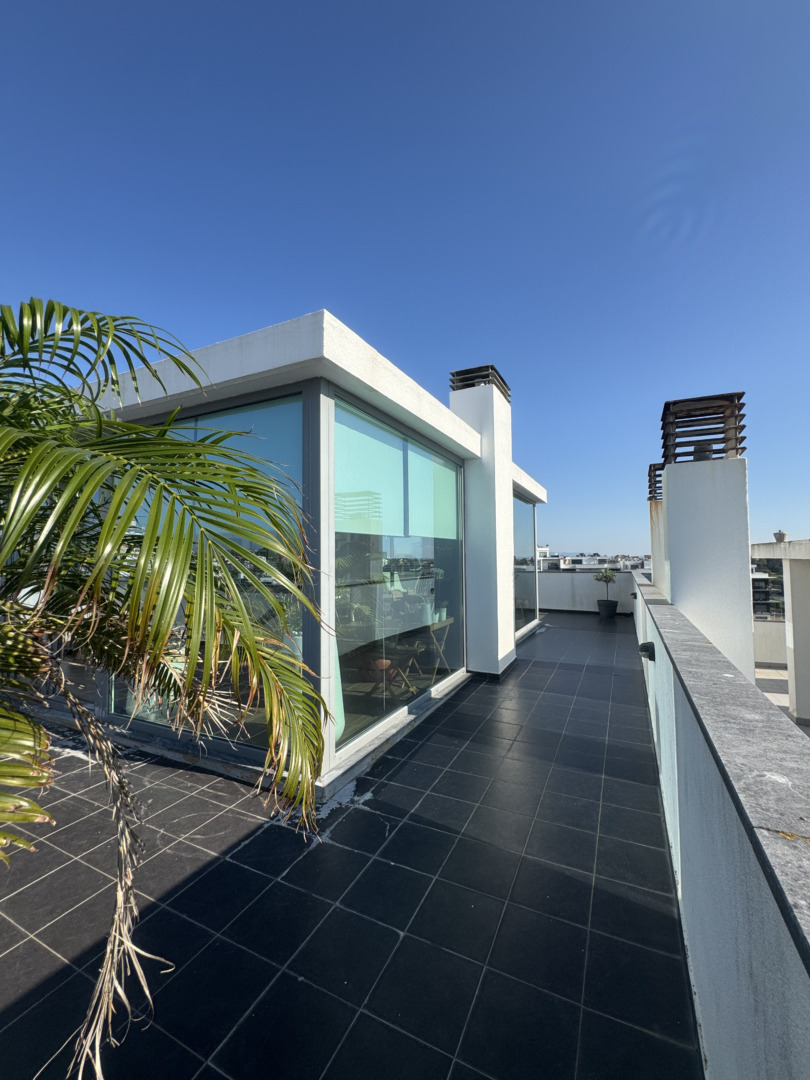
Duplex apartment with sea view 15 minutes from Lisbon
rua Santa Teresa 7Bedroom + duplex apartment with sea view and 15 minutes from Lisbon.

Single-storey house with swimming pool
Just a few meters from the magnificent bay of São Martinho do Porto, lies this…
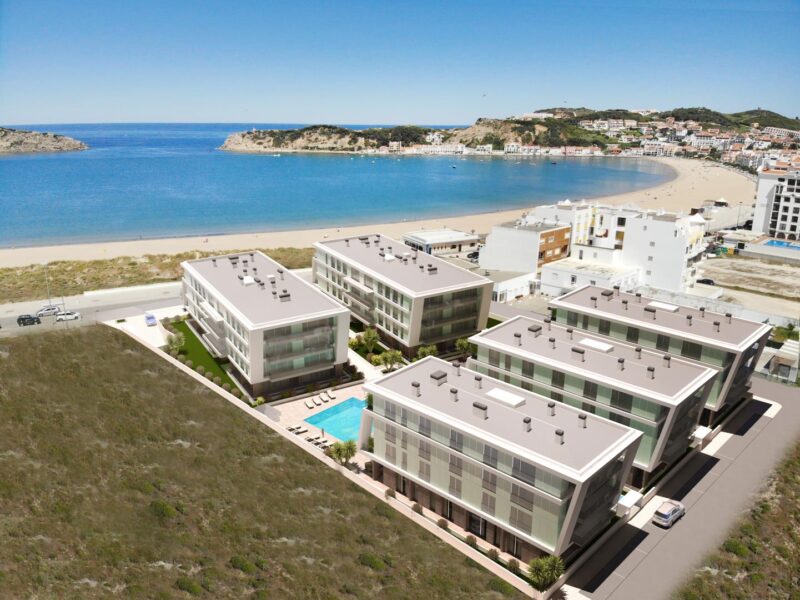
Condominium apartments facing the sea
São Martinho do PortoBeautiful apartments in São Martinho do Porto “Janela da Baía”! Located in the heart of…

Villa already finished and ready to move in: 4-suite bungalow on 750m2 plot in a quiet area of Azeitão
Rua de ParisHouse already finished and ready to move into! Close to shops and services, quick access…

Magnificent house with basement, indoor and outdoor pool in Verdizela/Aroeira
Verdizela/AroeiraNew turnkey project: magnificent single-storey villa, 498m2 in surface area, high-end finishes on a 1875m2…

Luxury apartment on the edge of a nature reserve
Your modern, spacious apartment between the beach and Lisbon’s capital. – Beach 5min – Golf…
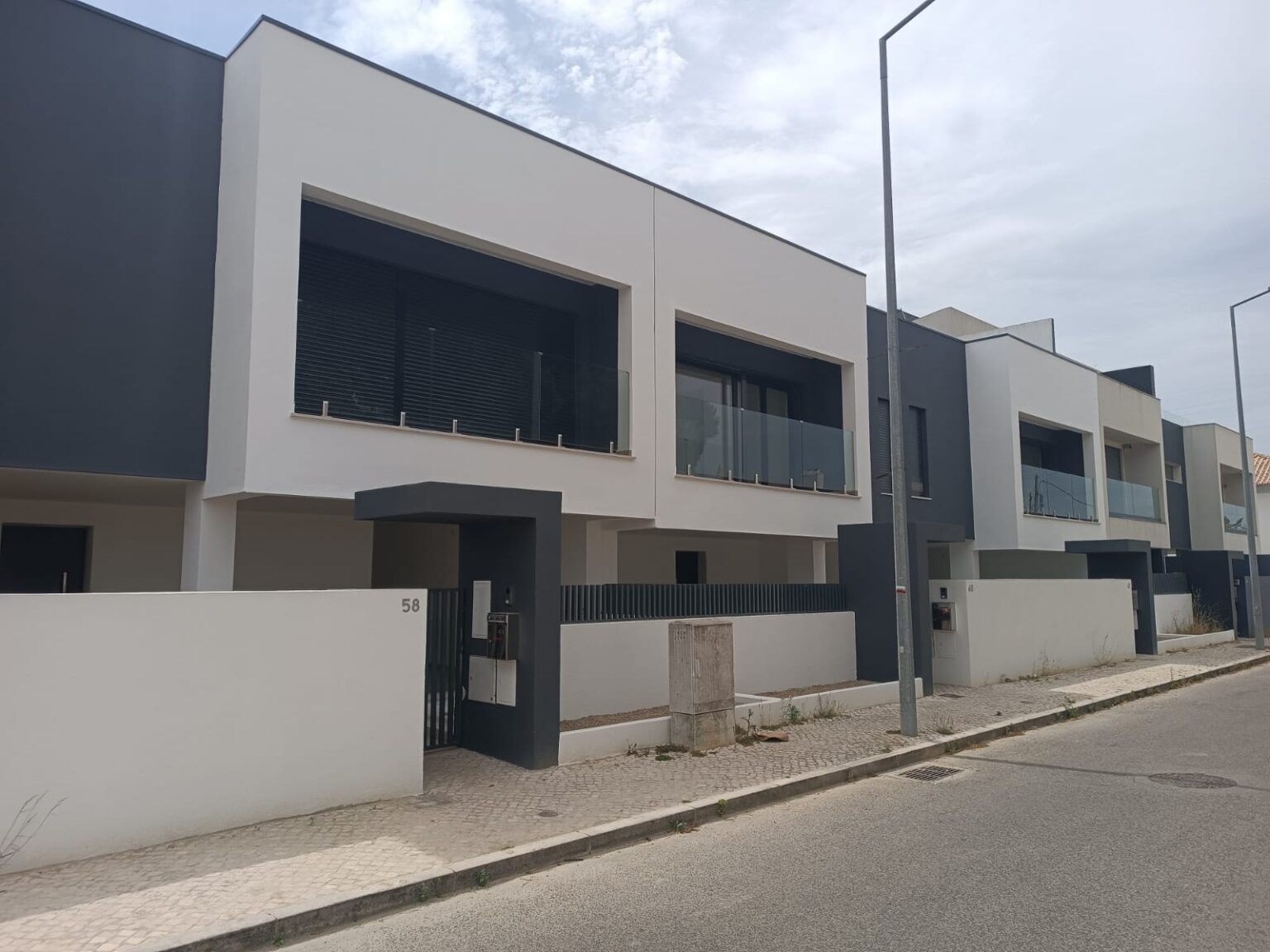
House T3 1 10 min from Lisbon and 5 min from the beaches
PêraREADY TO MOVE IN! New T3 1 ready-to-live-in house in a quiet, rural neighborhood with…

4 bedroom villa with pool and jacuzzi in Aroeira
rua são miguelModern, minimalist architect-designed house with exceptional details in a quiet location in Aroeira 2-storey house…
Inscrivez-vous à notre newsletter
Recevez chaque mois les derniers articles de notre blog "la vie au Portugal" et notre sélection de biens immobiliers à vendre.







